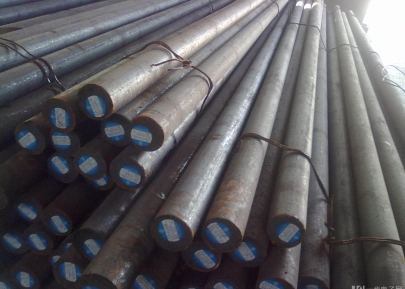In the competitive world of manufacturing, efficiency and flexibility are paramount. One way to achieve these goals is through the adoption of modular mold bases. This article aims to delve into the numerous benefits of using modular mold bases, particularly in the context of manufacturing in the USA.
What Are Modular Mold Bases?
Modular mold bases are a type of mold component system that allows manufacturers to create customized molds by combining different modular pieces. These bases provide a standardized platform that can be easily adjusted to fit various mold designs. This modularity simplifies the manufacturing process, reduces costs, and enhances overall operational efficiency.
Key Advantages of Modular Mold Bases
- Increased Flexibility: Manufacturers can easily adapt to changing production requirements without the need for extensive tooling changes.
- Reduced Lead Times: The standardized components of modular mold bases significantly reduce manufacturing lead times.
- Cost-Effectiveness: By reusing modular components, companies can save on tooling and production costs.
- Enhanced Precision: The precision-engineered components of modular mold bases improve the overall accuracy of the molds.
Improved Production Efficiency
In today’s fast-paced manufacturing environment, efficiency is key. Implementing modular mold bases can lead to substantial improvements in production efficiency.
| Efficiency Metric | Traditional Mold Bases | Modular Mold Bases |
|---|---|---|
| Setup Time | Long | Short |
| Production Changeover | Frequent delays | Quick adjustments |
| Cost of Production | Higher due to custom tooling | Lower from reusability |
Impact on Design and Customization
Another significant benefit of modular mold bases is their positive effect on design and customization. Here are some points highlighting this impact:
- Design Flexibility: Modular mold bases allow for rapid prototyping and iterations of mold designs.
- Customization: Manufacturers can easily modify molds to meet specific requirements without starting from scratch.
- Standardized Components: Using standard modules ensures compatibility and eases the assembly process.
Case Studies: Success Stories in the USA
Numerous manufacturers in the USA have successfully integrated modular mold bases into their operations. These case studies illustrate the tangible benefits that can be reaped from this approach:
Case Study 1: Automotive Parts Manufacturer
An automotive parts manufacturer implemented modular mold bases to streamline their production process. By doing so, they achieved a 30% reduction in setup time, allowing them to increase their output significantly.
Case Study 2: Consumer Goods Producer
A consumer goods producer utilized modular mold bases to reduce their production costs. They reported savings of over 20% due to the reusability of components across different products.
Environmental Benefits of Modular Mold Bases
The adoption of modular mold bases not only benefits manufacturers economically but also environmentally. The following points summarize the environmental advantages:
- Reduced Waste: By reusing components, companies generate less waste compared to conventional molds.
- Lower Carbon Footprint: Efficient use of materials and resources leads to a reduced carbon footprint.
- Sustainable Practices: Modular systems align with sustainable manufacturing practices and resonate with eco-conscious consumers.
Frequently Asked Questions (FAQ)
What types of industries benefit from modular mold bases?
Industries such as automotive, consumer goods, electronics, and medical devices find modular mold bases highly beneficial due to their flexibility and cost-effectiveness.
How can I transition to using modular mold bases in my manufacturing process?
Start by evaluating your current processes, identify areas for improvement, and consult with suppliers of modular mold technology to select suitable systems.
Are modular mold bases more expensive initially?
While the initial investment may be higher, the long-term savings from increased efficiency, reduced lead times, and lower production costs typically offset these expenses.
Conclusion
Modular mold bases represent a pivotal innovation in manufacturing that offers a plethora of benefits, including enhanced efficiency, reduced costs, and increased flexibility in design. Their adoption has been instrumental in transforming manufacturing processes across various industries in the USA. By embracing modularity, manufacturers can not only improve their bottom line but also invest in sustainable practices that align with the future of manufacturing.



